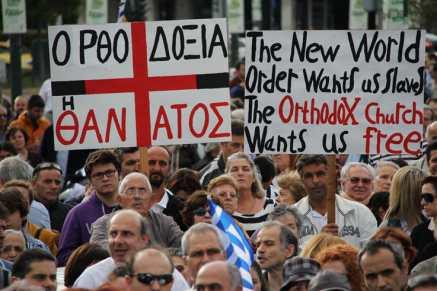Between 1880 and 1910 the Western European Empires completed their bloody invasion and occupation of Africa in a mad and immoral scramble for power, territory, resources and prestige. Only two African countries remained relatively free of this imperialism. One was Liberia – ‘the Free Country’ – effectively a US-founded dumping ground for unwanted ex-slaves, the other was Ethiopia, for which Italy and Great Britain vied in their envy.
The latter was unique – the only Black African country with an ancient Christian tradition, close in many ways to the Church. As such, it was therefore the only African country which attracted the interest of the leader of the Orthodox world, the Russian Empire. It understood that if Africa were to be converted to the authentic Christ, it would be through an Orthodoxy with practices similar to those of the Ethiopian Miaphysite (more exact than Monophysite) Church.
Russians had first had contact with Ethiopians in Jerusalem, certainly at latest in the 15th century. This distant interest remained constant until 1718 when Peter I tried to establish direct contact with Ethiopia. Meanwhile, at this time a part-Ethiopian courtier appeared in Russia – the ancestor of the greatest Russian poet Alexander Pushkin.
However, in 1874 and 1876 Emperor Yohannes IV called on Russia to help it against an Egyptian invasion and asked to enter into communion with the Church. His letters went unanswered until 1887 when they were at least acknowledged. Clearly, until then, the Russian Emperor had no intention of getting involved in Africa. Unlike the Emperor, the Church had other, spiritual, interests. Already in 1867 the messianic Russian missionary in the Middle East, Fr Porphyry (Uspensky), had called for the Ethiopian Church to unite with the Orthodox Church. His report was approved by the Holy Synod.
From this period on, sympathy for the Ethiopians increased in Church circles in Russia. Devoid of any type of anti-black racism, unlike Western Europeans, and devoid also of any sense of colonialism, to which Russia was vehemently opposed, Russians felt that Ethiopians were ‘Black Orthodox’. They had been isolated from the mainstream of the Church and the enlightenment of the Holy Spirit, thus keeping certain Judaising customs, but otherwise they were relatively closer to Orthodoxy.
Notably in 1888 the distinguished Russian Professor Bolotov (1854-1900) made a serious study of the whole question. He noted that Ethiopians had already clearly rejected the aggressive, colonising and militaristic missions of the Roman Catholics and Protestants, but if Orthodox missionary work were to be successful, it would take patience and understanding, i.e. love. The greatest problems, in his view, were Ethiopian nationalism and politics, with their desire to obtain military technology to fight off Western imperialism. Above all, there was the fact that, officially anyway, apart from its Jewish characteristics, the Ethiopian Church did not recognise the true humanity of Christ.
It was between 1889 and 1898 that Russia began to take a special interest in Ethiopia. Then the Metropolitan of Kiev sent a delegation to Emperor Menelik. It was headed by a Guards Officer, Lt Vasily Mashkov. The mission had a spiritual meaning and, arriving in October 1889, Lt Mashkov spent most of his time with Ethiopian clergy. In January 1890 Russia was swept by a wave of indignation against Italy which was trying to colonise Sovereign Ethiopia. Such were the cultural and spiritual ties then that it was felt that Russia should send an advisory mission. Mashkov returned in February 1891 only to set out on another mission, with a grant from the Russian Geographical Society and was accompanied by two monks and an interpreter. This mission was to last for one year. This was followed in January 1895 by another mission under a Captain Eliseiev.
These missions were all successful and the latter mission was followed by a visit of an Ethiopian mission to Russia. This consisted of the Ethiopian Bishop of Harrar and a group of nobles. The Ethiopians were impressed by the warmth and sincere esteem of the Russian welcome and their lack of colour prejudice. On 4 July the embassy was received by Tsar Nicholas II, who was awarded the Order of Solomon by the Ethiopians and given rich presents. Russia wished to see the ancient Christian kingdom unmolested by colonialism, for Russian anti-colonialism was absolute, as was later seen in the universal and popular Russian defence of the Boer cause and the Russian volunteers who fought on the Boer side.
After this, Russian expeditions and medical missions arrived in Ethiopia, preserving tens of thousands of lives, right up until 1906. The first diplomatic mission opened in October 1897. Its head, was told to promote economic and political relations and to bring about co-operation between the two Churches. It had some thirty members. Unfortunately, however, these Russian efforts in Ethiopia came too early. Ethiopia was locked in its own ancient mindset and Russia was to be distracted from missions in Ethiopia, as also from its missions in Tibet and Siam (Thailand), by the Western-backed Japanese aggression in 1904 and, in 1914, by direct Western European aggression. It remains to be seen whether the 40 million and more Ethiopian Christians of today will ever be brought back to Orthodoxy.

